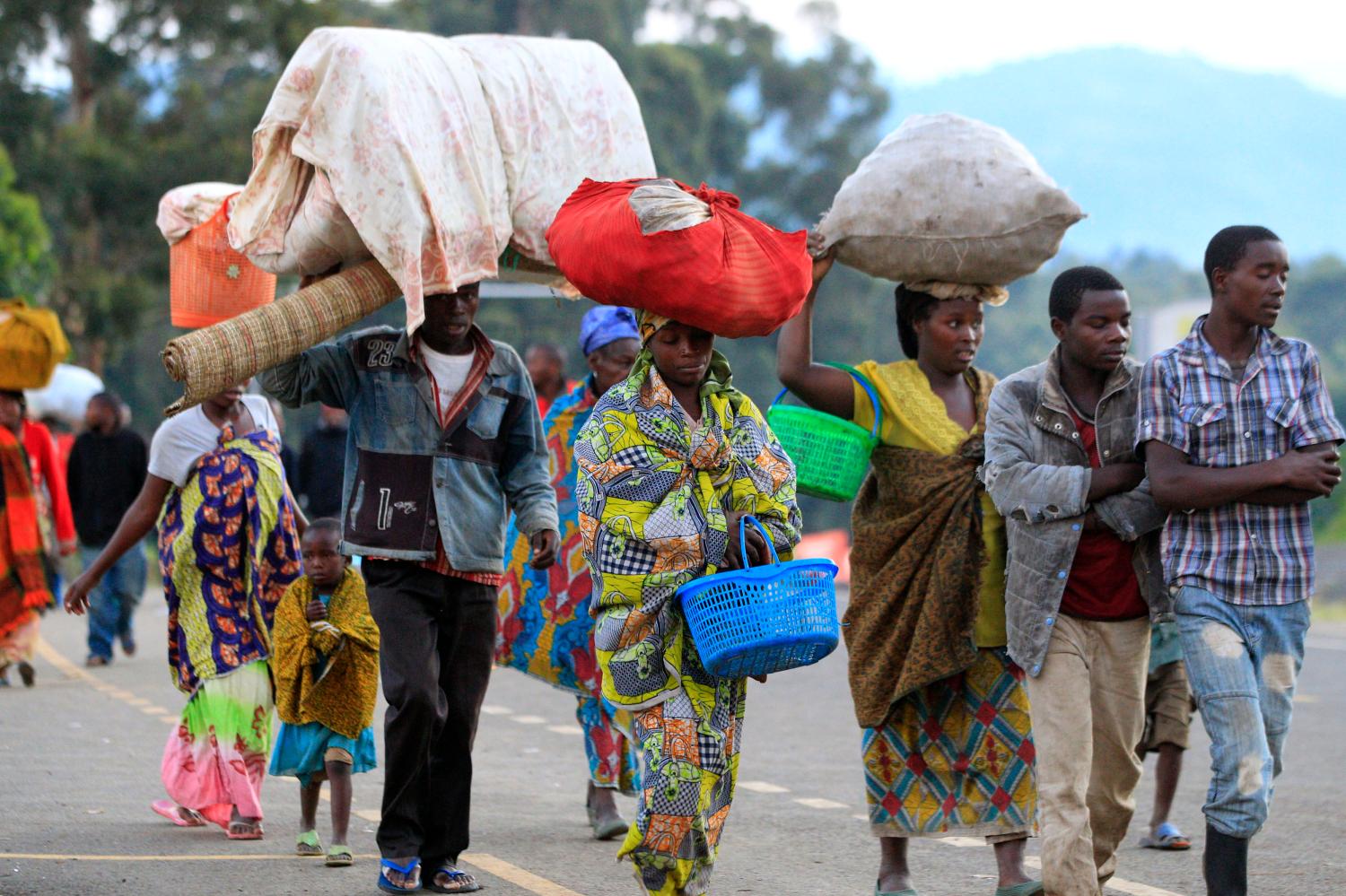The negotiation and entry into force of the African Union Convention for the Protection and Assistance of Internally Displaced Persons in Africa (Kampala Convention) represents a milestone in efforts in advance the rights and wellbeing of those uprooted within their own countries. On April 8, 2014, the Swiss Mission to the United Nations in New York, in cooperation with the permanent mission of Zambia, hosted a discussion on the Kampala Convention. This event provided an opportunity to raise awareness of this agreement, and to explore the domestication and implementation process, and its implications for Africa and other regions. This report provides a brief summary of the discussion.
The discussion was opened by Mr. Paul Seger, Permanent Representative of Switzerland to the United Nations. Ambassador Seger highlighted Switzerland’s longstanding efforts on behalf of internally displaced persons (IDPs), including through support for the work of the UN mandate-holders on the human rights of IDPs. Ambassador Seger underscored the moral and legal obligation of States to protect and assist IDPs, an obligation that is strengthened in important ways through the Kampala Convention.
A national-level experience: Zambia’s efforts to domesticate the Kampala Convention
Ms. Mwaba Kasese-Bota, Ambassador of Zambia to the United Nations, shared reflections on the importance of the Kampala Convention for Zambia, and the steps the country is taking to domesticate and ensure effective implementation of the Convention. Zambia was one of the first countries to sign, ratify and implement the Convention, perhaps a reflection of its pride in the leadership role played in the negotiation of the agreement by Zambian national Dr. Chaloka Beyani. While Zambia does not face internal displacement due to conflict, the Kampala Convention is nonetheless highly relevant for Zambia, and other African countries, as it addresses displacement associated with a wide range of factors including natural disasters and development projects. In order to ensure an effective response to the challenges posed by internal displacement, the Zambian government has allocated responsibility for this issue to the Office of the Vice President. Zambia’s efforts to domesticate the Kampala Convention were informed by consultations with a range of key stakeholders, which resulted in the development and approval in late 2013 of a cabinet memo on the issue, and guidelines on compensation and resettlement in internal displacement situations, focusing in particular on the challenges associated with displacement due to development projects. These guidelines address issues including protection from and during displacement, and the role of international actors. They are now being used by the Zambian government as it seeks to prevent and respond to internal displacement in line with its obligations under the Kampala Convention.
Regional leadership in responding to internal displacement
Mr. Amadou Kebe, Ambassador of the African Union in New York, continued the discussion by introducing the role of the African Union (AU) in bringing the Convention to fruition, promoting its ratification, and supporting its implementation. The African region began to take a major leadership role in developing normative standards on displacement in the 1960s, in the context of the negotiation of the 1969 Organization for African Unity (OAU) Convention Governing the Specific Aspects of Refugee Problems in Africa. Over time the links between refugee and IDP issues across the continent have become increasingly clear, with African families and communities drawing on remarkable traditions of hospitality to provide shelter to refugees as well as IDPs. Having supported the negotiation of the Convention and its entry into force, the AU is now playing an important role in encouraging further ratifications and domestication, and promoting the broader range of actions necessary to address the root causes of displacement. This includes support for livelihoods and community resilience, as well as combatting sexual violence in countries including the Democratic Republic of Congo.
The Brookings Institution is committed to quality, independence, and impact.
We are supported by a diverse array of funders. In line with our values and policies, each Brookings publication represents the sole views of its author(s).




